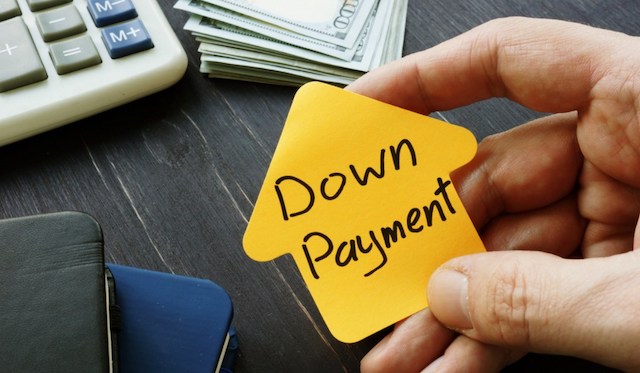Coming up with the money needed for a down payment on a house is challenging for many people. If you don’t qualify for a loan program that doesn’t require a down payment, you will have to come up with a percentage of the purchase price to put down on a home. Some are fortunate and have someone (or several people) give them money as a gift to go towards purchasing a home. And even better, there is no limit as to how much someone can gift you. No doubt, that is a wonderful thing! But there are guidelines that must be followed when using financial gifts for your down payment.
What are “gift funds”?

Gift funds are just what they sound like…money you receive as a gift from someone. Family members and/or close friends can contribute money toward a fund to help you finance your new home. In order to use those funds as a down payment, the donor must sign a letter stating that the money is a gift, not a loan. The letter must also include the name of the donor, their relationship to you, the date and amount of the gift and a statement that says the money is given with no expectation of repayment. Both you and the donor must sign the letter. If the money is being deposited into your bank account, you must provide a paper trail (such as copies of checks or bank statements) showing how the money was transferred from a donor’s account to your account. While there is no limit as to how much can be gifted to you, you may be required to provide a certain percentage of the down payment yourself. But keep in mind that your gifted funds can go to your closing costs as well.
Here are some general guidelines for using gifted funds for a down payment on a house:

- The donor must not have a financial interest in the home transaction.
- The donor must provide a signed gift letter that includes the amount being given, the date of transfer, statement that no repayment is expected, relationship to borrower, and contact information.
- The lender must have proof that the money they are contributing was not obtained via a loan that the donor took out for themselves. Bank statements, cancelled checks, deposit slips etc. may be required to show the proper transfer of funds.
- Cash gifts are discouraged as it can be difficult to demonstrate where the money came from and can raise red flags that may delay your loan process. If you do receive a cash gift, be sure to allow time for it to be in your account for at least 60 days.
- Per the Federal National Mortgage Association (FNMA), or Fannie Mae, gifted funds can come from relatives, spouses, children, dependents, and anyone else related to the borrower through blood, marriage, adoption, or guardianship. This also includes fiancés, future in-laws, and domestic partners.

As stated above, you may not be able to use gifted money for your entire down payment. It depends on the type of loan you are seeking. If you are taking out a conventional loan, all your down payment can come from a gift if you are putting down 20% or more. If you are putting down less than 20%, you must include some money of your own. Regarding FHA loans, depending on the borrower’s credit score, a minimum of 3.5% down (with a credit score of 580 or more) and 10% down (with a credit score between 500-570) will be required and the entire amount can be gifted from an eligible donor. For VA loans that don’t require a down payment, gift funds can be used to pay closing costs. Regardless of what type of loan you apply for, you can only use gifted funds to purchase a primary residence or a second home.
While it’s not necessary, it is a good idea to have the gift in your bank account prior to applying for a loan. That way when your lender looks through your bank statements for the previous few months, they will already see documentation of the gift.
If you’re thinking about selling or buying a home in the New River Valley area, contact professional, experienced Realtor Desi Sowers and let her assist you with all your real estate needs. Give her a call today at 540-320-1328!
Photo credits: forbes.com, housing.com, waypointinspection.com

